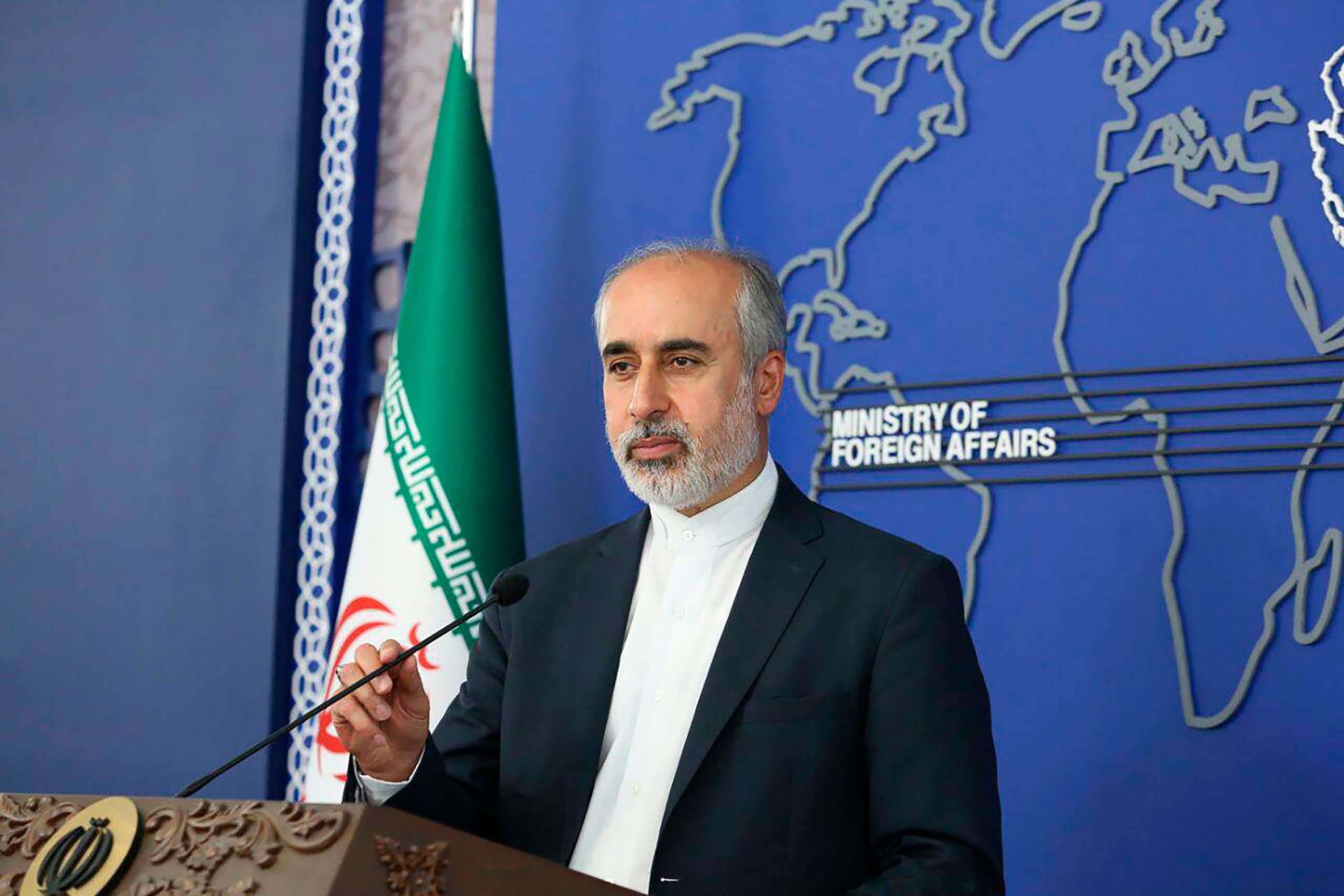Iranian official says Salman Rushdie and his fans are to blame for attack
"No one has the right to accuse Iran," an Iranian official said on Monday.
LONDON -- The Iranian government on Monday denied that its officials were responsible for the attack on Salman Rushdie, saying the government hadn’t previously heard of the man who allegedly stabbed the author on Friday.
"No one has the right to accuse Iran," Nasser Kanaani, spokesperson for the Iranian Foreign Ministry, said in his weekly press conference on Monday, adding that Iran was not previously aware of the alleged attacker.
"We know nothing about this person more than what we heard from the American media,” Kanaani said.

Rushdie, an Indian-British citizen, was stabbed last week during a lecture event in New York. Police identified the suspect as Hadi Matar, 24, who was charged with attempted murder in the second degree and assault in the second degree. Matar pleaded not guilty to the charges in court on Saturday, The Associated Press reported. An attorney entered the plea on his behalf, The AP said.
In 1989, Iran’s then-Supreme Leader Ayatollah Khomeini issued an apostasy fatwa over the author’s novel “The Satanic Verses.” The book was partly inspired by the life of Muhammad, the prophet of Islam. Iranian leaders and others accused Rushdie of blasphemy.
"Salman Rushdie exposed himself to the public anger by insulting Islamic sacred topics and crossing red lines of both over 1.5 billion Muslims and red lines of followers of all divine religions,” Kanaani said on Monday. “All of them were offended by someone insulting a divine prophet."

"In attacking [Rushdie], no one deserves condemnation except of [Rushdie] himself and his supporters,” Kanaani said.
The Iranian foreign minister in 1998 said that the country had dropped Rushdie's death threat, but the current supreme leader of the country, Ayatollah Ali Khamenei, who has the final say in the country's political decision-making and issuing of religious decrees, confirmed multiple times, including in 2017, that the fatwa was still valid.
Rushdie was taken off a ventilator and was on the “road to recovery,” his literary agent, Andrew Wiley, said on Sunday.
Prior to Iran’s official reaction, local media appeared to express some contentment that Rushdie had been stabbed. Iran Daily, which often reflects the government's perspective, ran a story under the headline: "Satan's neck under the blade."

Another newspaper, Keyhan, whose managing editor was appointed by Iran's leader, congratulated the man who allegedly stabbed Rushdie, calling him "courageous." It called for "a kiss on his hand who tore the neck of God's enemy with a knife."
Another newspaper printed a front-page story with the headline "Satan on the Path to Inferno,” which ran with a picture of Rushdie on a stretcher being wheeled away.
Public opinion on the stabbing may differ from the official perspective, according to one source who spoke with ABC News on Monday.
“This is a clear attack not just on a great writer but to the freedom of speech. Such acts must stop,” said Sarah, an Iranian student in sociology, who asked that her last name be withheld for her safety. “I am so happy that Rushdie survived and is on the path to recovery and the extremists failed doing what they wanted.”




